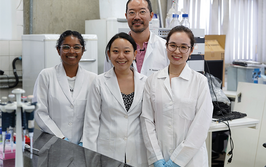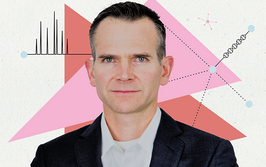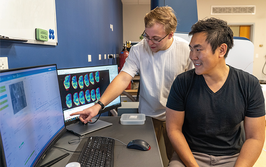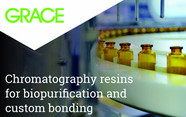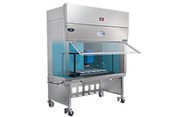Black is the New Beige
As instrumentation becomes ever more sophisticated, the connection between the analytical question being asked and the answer provided is steadily eroding. Where does that leave us?
I own two vehicles. One is a Triumph Spitfire, an English sports car that debuted in 1962; the other is a modern German tourer. If you haven’t driven a vintage open-top car through the countryside, then you’ve missed out on one of life’s pleasures. As well as being more connected to the great outdoors, the Spitfire is also mechanically simple, so it provides a more visceral sensation of being powered to your destination – petrol fumes included.
With a modern car’s electronic engine management, servo assisted brakes and powered steering, you lose the capacity for do-it-yourself repairs and the sense of intimate involvement with driving. What you gain is safety, efficiency, performance, reliability, comfort and space: in virtually every way, today’s sophisticated cars are much better.
Many aspects of our lives are being similarly impacted by technological developments. And perhaps the highest stakes of all are in the world of analytical science.
Analytical instrument manufacturers have worked wonders in terms of accuracy, precision, miniaturization, throughput, speed and resolving power – the performance of off-the-shelf separation and analysis products is, frankly, awesome. Indeed, the impact that these developments have on our health and well-being is one of the central planks of our editorial coverage. But we also need to spare a thought for what we might be losing.
The concern is raised by Wolfgang Lindner (see Breaking out of the Black Box): if you don’t understand the instrument you are using, how can you be sure that you are correctly interpreting your results? Or that you are even asking the right questions? Essentially, relying on “mysterious or unknown internal functions or mechanisms” (one definition of “black box”) not only puts individual measurements at risk, it puts the credibility of analytical science on the line.
Solutions? One has to be education, as Lindner notes. An analytical scientist must have a good working knowledge of multiple fields held together by a core of solid chemistry.
A second solution is to throw away the black box and apply new knowledge that focuses on making analysis much simpler. See the feature on wearable sensors for some bold approaches of this sort.
And what about the professional equivalent of keeping an old Spitfire in the garage? Vintage kit that you could use to maintain old-fashioned skills, experiment with, or offer youngsters a glimpse of their field’s heritage. Or maybe even just to have some fun with. There is no need for analytical science itself to be beige.

Rich Whitworth completed his studies in medical biochemistry at the University of Leicester, UK, in 1998. To cut a long story short, he escaped to Tokyo to spend five years working for the largest English language publisher in Japan. "Carving out a career in the megalopolis that is Tokyo changed my outlook forever. When seeing life through such a kaleidoscopic lens, it's hard not to get truly caught up in the moment." On returning to the UK, after a few false starts with grey, corporate publishers, Rich was snapped up by Texere Publishing, where he spearheaded the editorial development of The Analytical Scientist. "I feel honored to be part of the close-knit team that forged The Analytical Scientist – we've created a very fresh and forward-thinking publication." Rich is now also Content Director of Texere Publishing, the company behind The Analytical Scientist.
